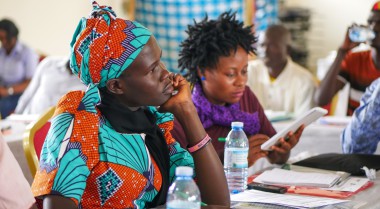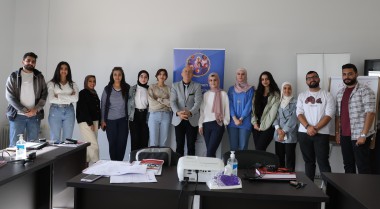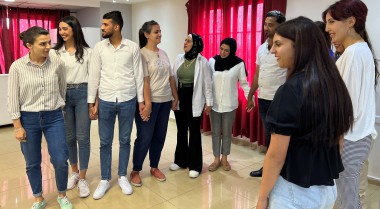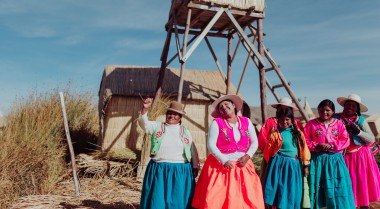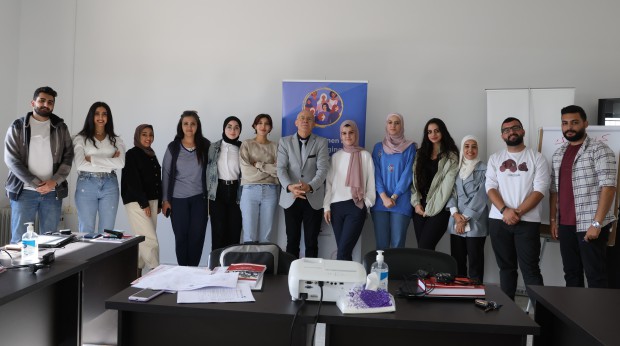
Resilience is prevention
The Impact of resilience training in crisis support
"In a crisis, recognising and understanding emotions is of the greatest importance for creating the conditions for peace.’’
Psychologist from Serbia, Biljana Lajovic, knows that creating lasting peace starts with understanding our emotions in conflict situations. For example, not addressing emotions like fear and anger, which are often root causes of conflict, can prolong the path to peace. That is where psychosocial support comes in, creating an environment where individuals learn how to recognise and comprehend emotions better. These qualities are vital for effective dialogue, resilience, and conflict prevention because they foster empathy and build the foundation for productive and meaningful exchanges.
"Resilient people understand emotions and know how to deal with them. This is what we call emotional consciousness and emotional literacy. These skills help us to meaningfully take part in peace processes in a way that improves understanding and readiness to find constructive solutions."
Increased resilience equips women with the emotional strength and adaptability to navigate challenging circumstances. As women are often the first responders to crises, it also empowers them to play a meaningful part in conflict prevention and resolution.
"Resilient women peacebuilders can support others in crisis and conflict because they have the power to understand the needs and emotions of others better."
In times of conflict, women face complex challenges. Their vulnerability increases due to various factors, including limited access to resources, heightened risk of violence, worsened gender inequalities, and increased caregiving responsibilities. This is why, according to Biljana, women who have strengthened their resilience through training can provide emotional support and guidance to their communities in times of crisis. Their ability to empathise, communicate effectively, and adapt to different cultures enables them to foster a sense of solidarity and collective strength that proves vital when facing challenges together.

The importance of support networks
Women like Biljana, who exemplify resilience and provide psycho-social support to others, also need support for themselves. A critical element of psycho-social support is creating a support network. This can take various forms, ranging from formal organisations to informal peer groups. Biljana finds support in the GPPAC network, a safe environment for diverse women peacebuilders to exchange their experiences. Despite their different backgrounds, these women often face similar challenges. The network offers a supportive and collaborative space where they can come together to overcome shared obstacles.
"One of the biggest advantages of a network is that we get together and talk about our experiences. Through these exchanges, new ideas emerge from our differences and, by working together, we get to experience our differences as wealth, not as a threat."
In late spring of 2023, Biljana co-facilitated a training on resilience-building and psycho-social support for a group of women peacebuilders within the GPPAC network. The participants were predominantly from women-led civil society organisations in Central Asia. With co-facilitator Tatjana Popovic, Biljana taught women how to better understand emotions during conflict situations and how to support others in need. The resilience-building training aimed to enhance women’s ability to participate meaningfully in peace processes and support their conflict-affected communities. The fact that all participants and the facilitators came from countries with a history of conflict created a foundation of mutual understanding.
"Our training is not only based on theory but on our experience as well. Even if we came from different cultures, we understood one another. Although we had just met, we felt we had known each other for a long time."
Perceiving GPPAC as her support network, Biljana reflects on the training she facilitated and recognises how the experience reinforced the significance of having a strong support system. Being members of the same global network allowed the participants and facilitators of the training to form a solid bond with each other. To further support experts like Biljana and women leaders seeking capacity strengthening, GPPAC continues to promote women’s participation in peace processes by partnering with the Rapid Response Window of the United Nation’s Women’s Peace and Humanitarian Fund.
This work was supported through GPPAC's partnership with the Rapid Response Window of the United Nations Women’s Peace and Humanitarian Fund, which supports strategic initiatives to increase women’s meaningful participation in peace processes.
